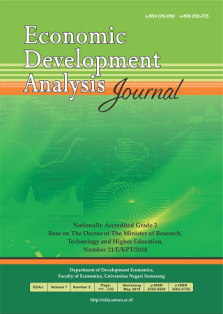Institutional Quality and Economic Growth in Muslim Countries
Abstract
This research analyzes the link between institutions and growth in a selection of Muslim nations to determine which elements have the most influence. The study spans 20 years, from 2002 to 2021, and employs a cross-country analysis to conclude that only three aspects of institutional quality (government effectiveness, political stability and lack of violence/terrorism, and voice and accountability) are strongly related to economic growth. The findings, obtained through a dynamic panel setting, reveal that most control variables exhibit significant effects consistent with expected outcomes. However, the investment coefficient, while positive, lacks statistical significance, suggesting that the impact of investment on economic growth in Muslim nations is not robust enough to be statistically validated. Moreover, the study delves into institutional quality's impact on economic performance and finds that three out of five variables significantly influence growth. Government effectiveness, political stability, and absence of violence/terrorism demonstrate substantial positive correlations, particularly at the 1% significance level. While still positively related to economic growth, regulatory quality and the rule of law only exhibit significance at the 10% level. To further understand the impact on economic development, this paper advises that future research explore numerous institutional quality criteria and segregate Muslim countries based on their political systems.


